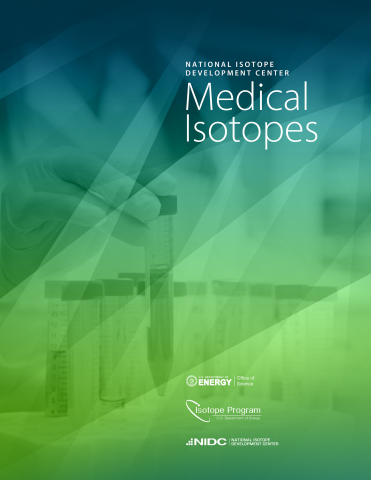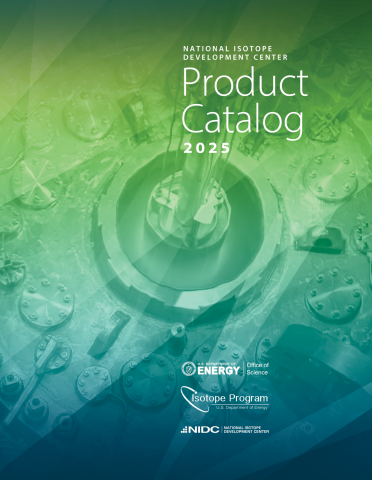NIDC Program Literature

Medical Isotopes
The routine use of radioisotopes in the fields of biology, medicine, and pharmaceuticals has led to safer and more effective diagnoses and treatments of numerous medical conditions, including cancer. As a result, millions of patients worldwide have experienced improved health and quality of life. Through its extensive network of national laboratories and partnering universities, the DOE IP develops, produces, and supplies isotopes that are critical components of these medical diagnostic and treatment options. Particle accelerators, research reactors, medical cyclotrons, and radiochemical processing laboratories are among the facilities that help the program meet this objective.
The DOE IP’s portfolio has grown over time to include more than 35 medically relevant isotopes available through the National Isotope Development Center (NIDC) product catalog, with several more under investigation at universities and national laboratories.





